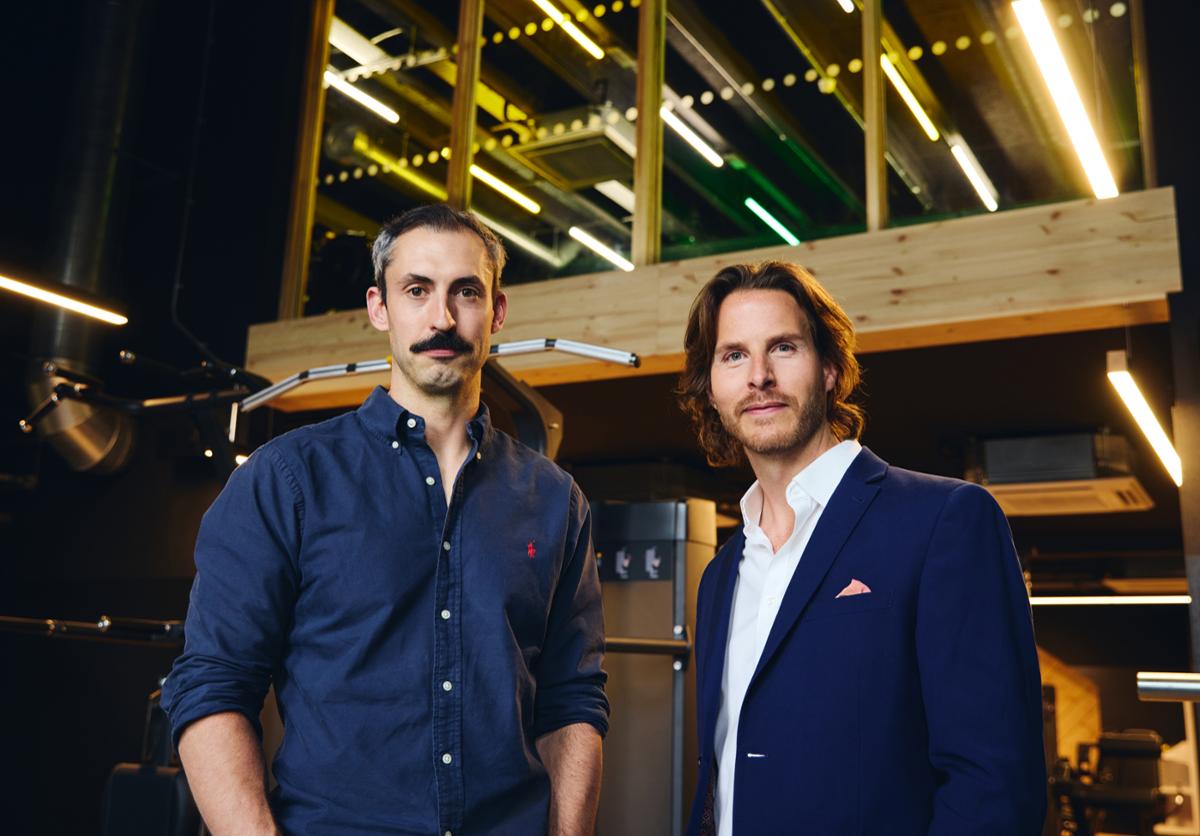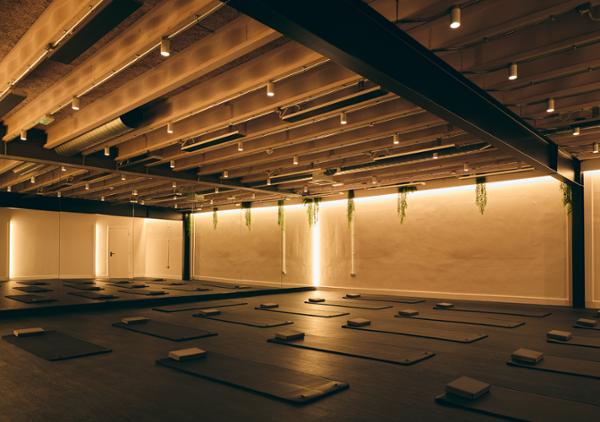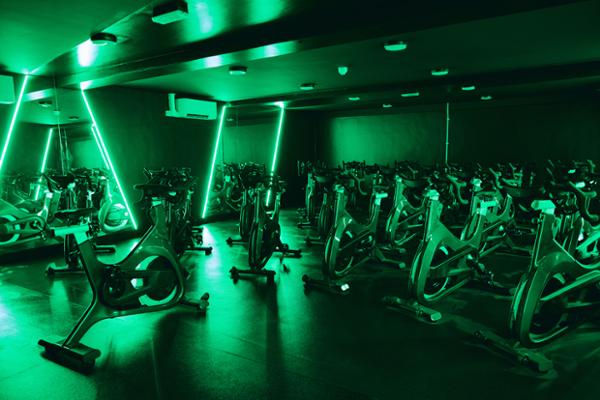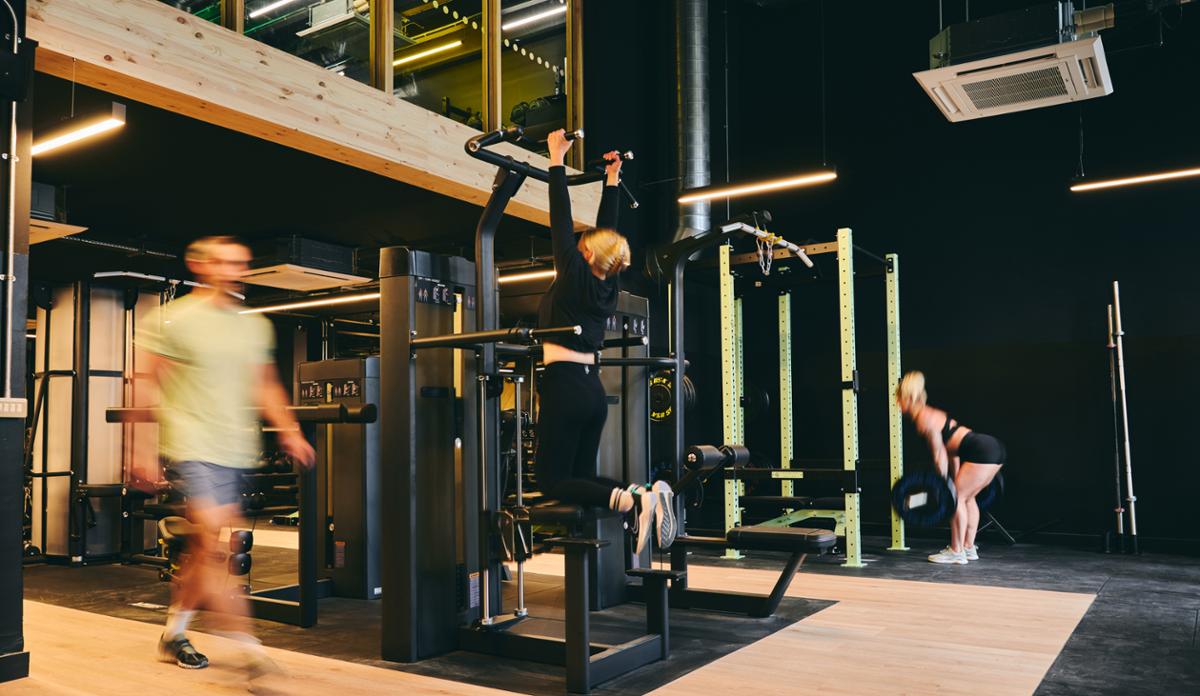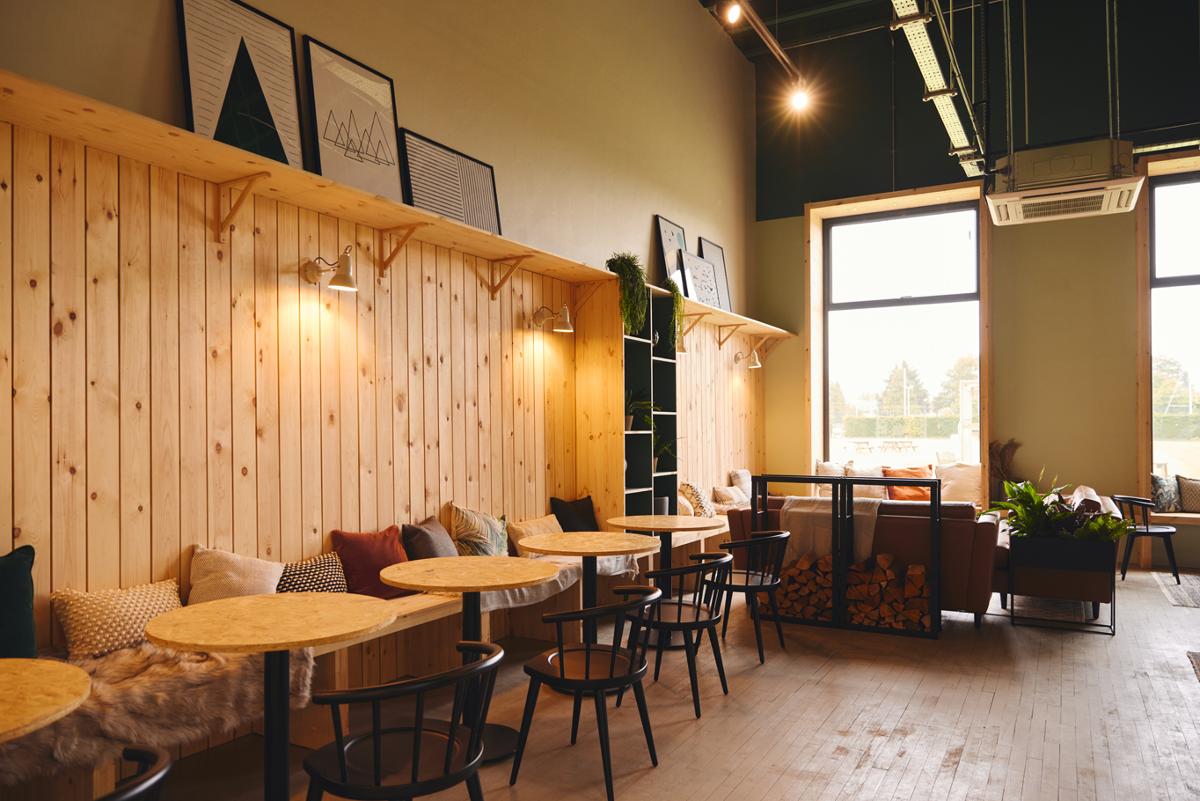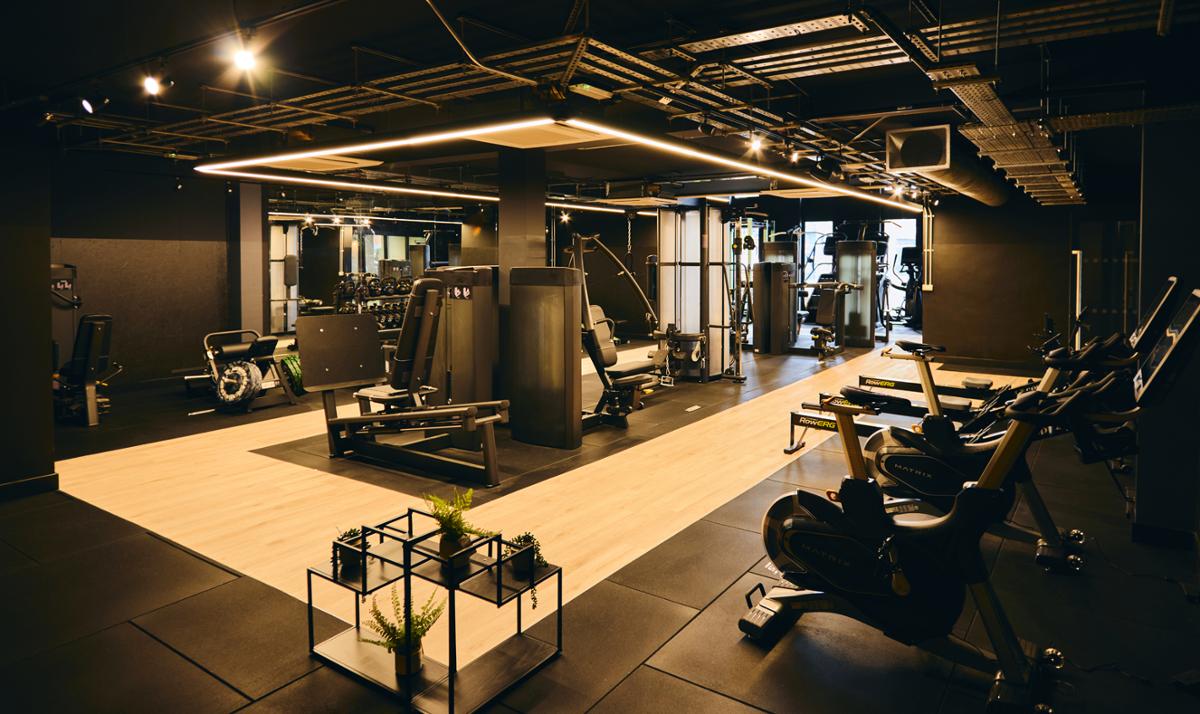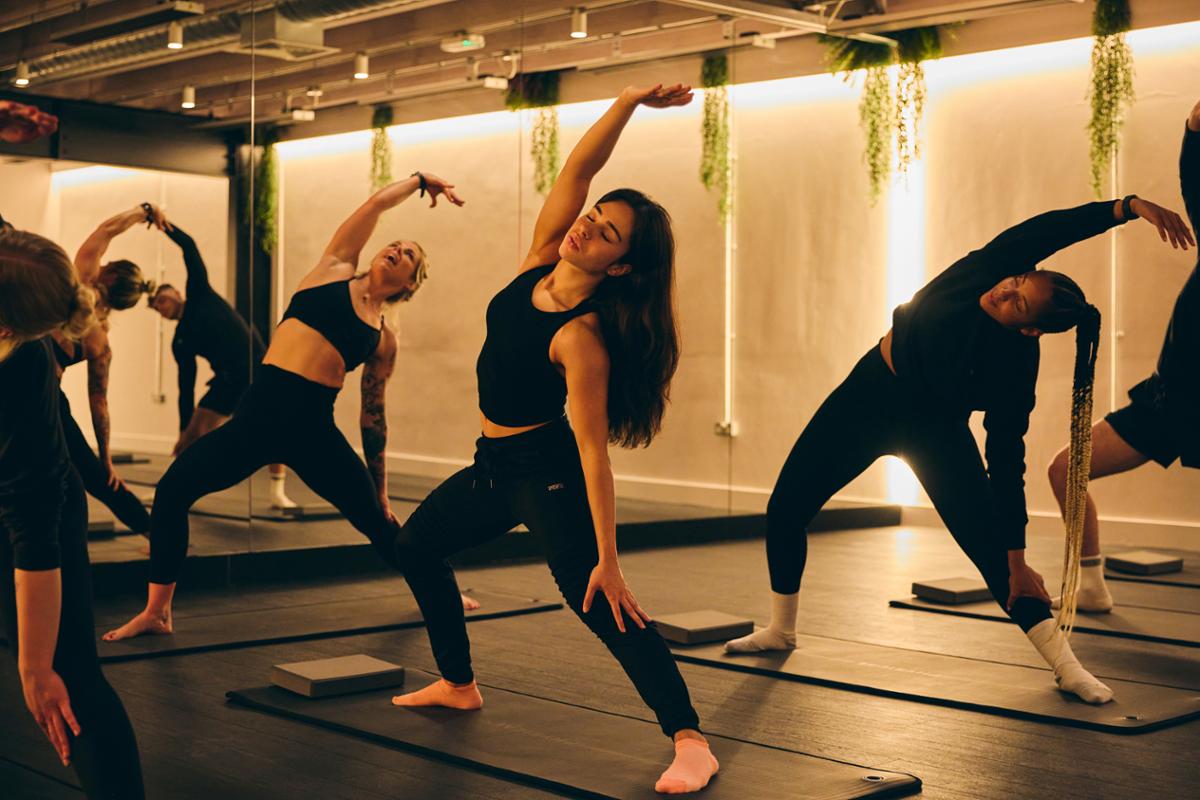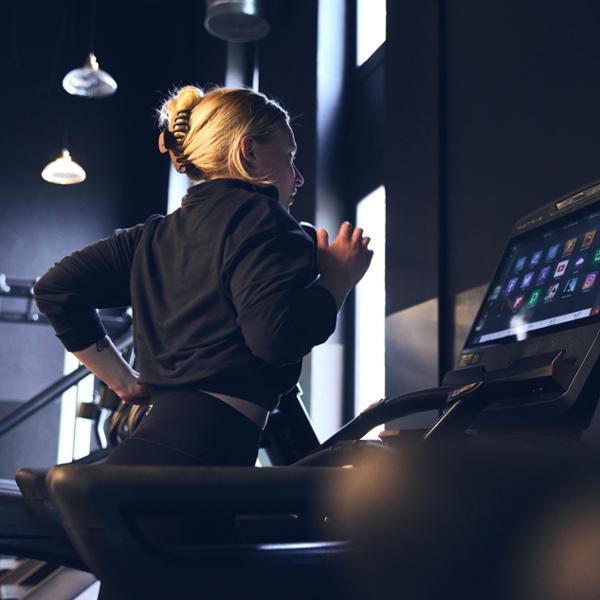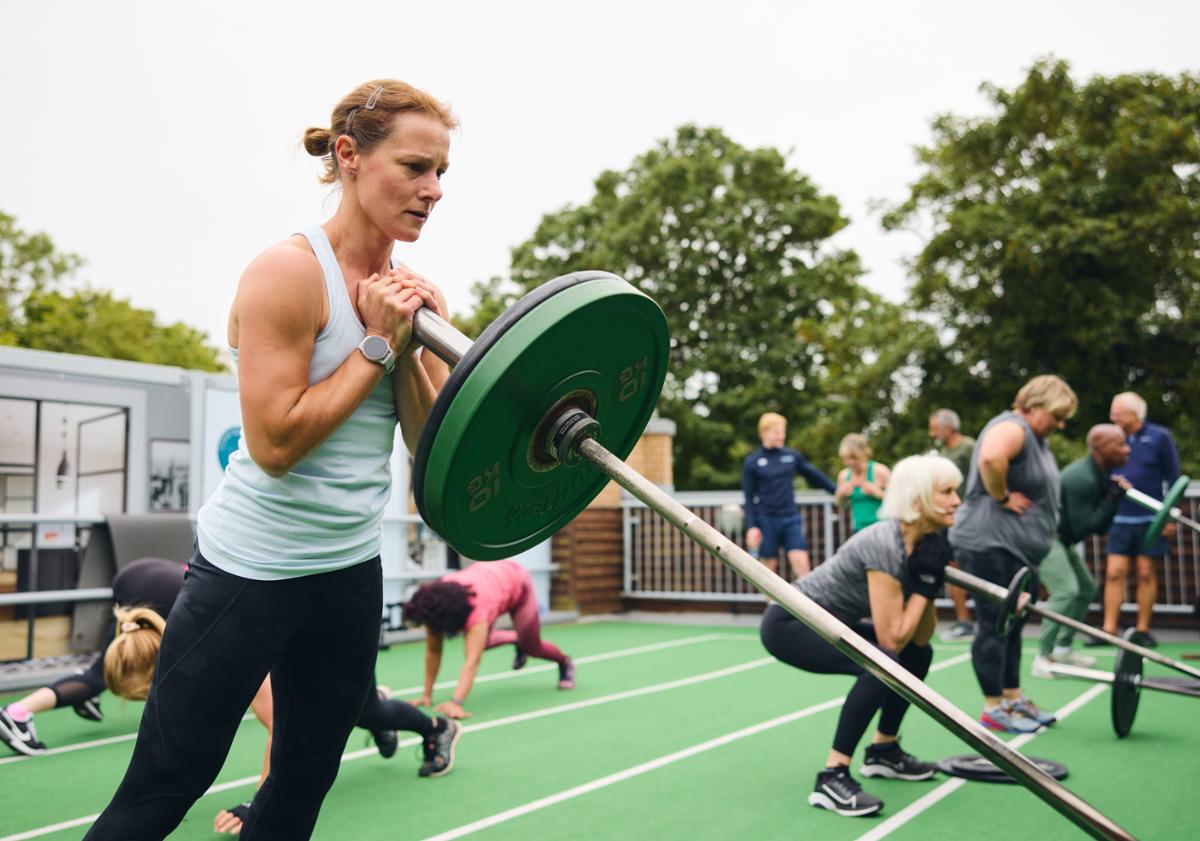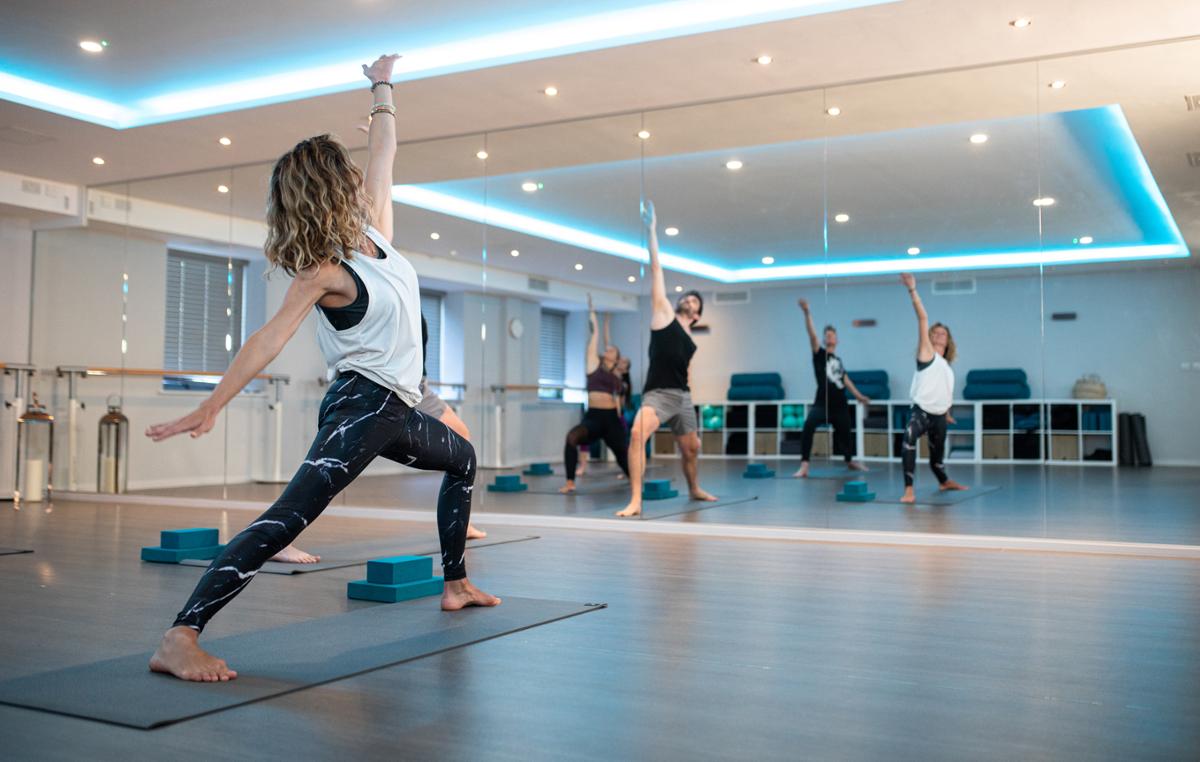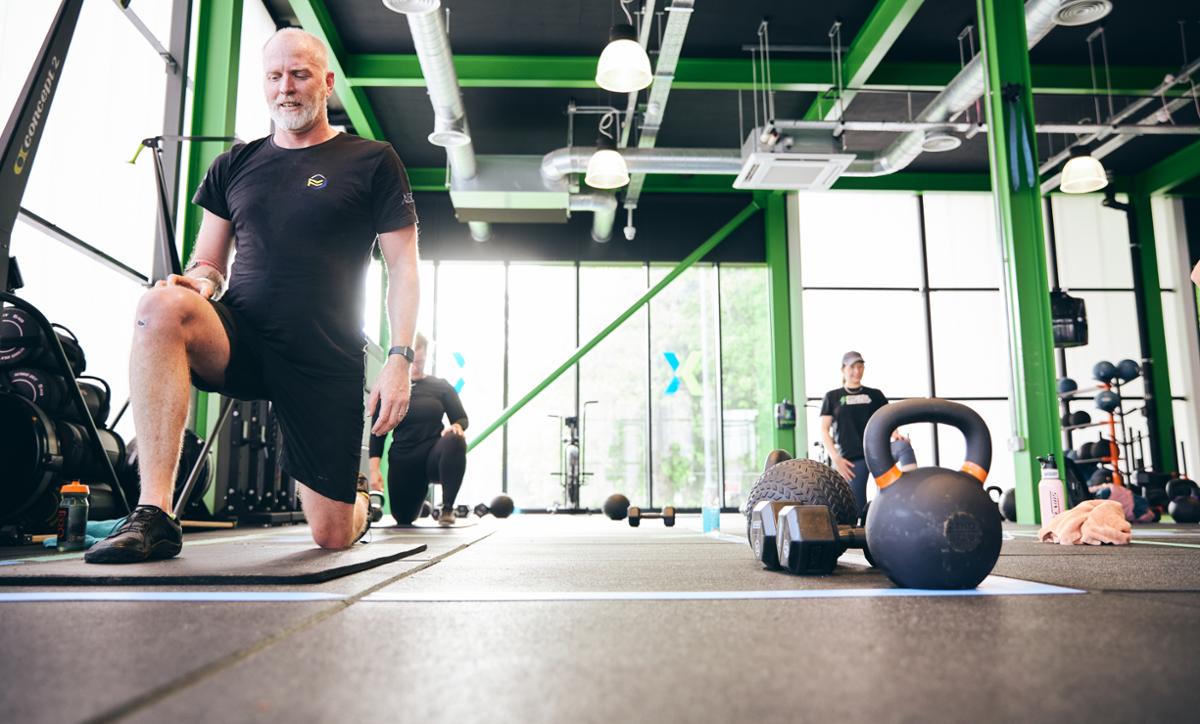Tell us about the Forest House concept
For the last 10 years, we’ve had a number of brands running alongside each other: a premium health club experience at The Marlow Club, a premium yoga and pilates offering called PilaYoga and our functional fitness studios, The Fitness Experts.
With the launch of our new £3m Forest House club in Watford (June 2023), we’re bringing everything together in what we jokingly call our ‘greatest hits compilation’. We’ve taken the best of what we’ve done over the years and applied all our learnings to create something genuinely new and different in the market.
Funnily enough it’s a site we’ve had on our radar for over 10 years, as it was going to be our first Fitness Experts location. It’s part of the West Herts Sports Club, where –alongside the 18,000sq ft building we’ve taken on a 125-year lease – are 12 tennis courts, cricket, football and five-a-side football. Our members have access to all these facilities.
How did you approach the development?
We completely gutted the building – all we left were the walls – and started again from scratch, working with Jeffrey Jordan Architects and designer Sarah Mannerings to create a space that simultaneously makes you feel comfortable and has a wow factor. The feeling we’ve gone for is more Soho House members’ club than health club, with distinct spaces where you can spend time – the restaurant, for example, which features lots of wood and hanging plants.
The notion of ‘Forest’ is drawn from the environment – the club itself is surrounded by fields – and we’re making it as sustainable as possible, with solar panels on the roof coming in 2024, planting all around the club, everything sourced locally and five trees planted for every member who joins.
The ‘House’ part of the name is about making people feel at home in a community where they feel safe, with service levels that are out of this world. It doesn’t feel like a club, it’s a second home, with a maximum adult-only capacity of 2,000 members. Even people who’ve never found a club that ‘fitted’ them before will feel comfortable at Forest House.
What’s on offer?
There’s a strong emphasis on group exercise, with a yoga-Pilates-hot yoga studio (Flow), a reformer studio (Reform), a functional fitness studio and an indoor cycling studio (Ride). There’s also an open gym floor, a lounge, multiple therapy rooms and two squash courts.
We’re not ruling out a spa in the future – we have the space – but with energy prices as they are, we’re pleased we decided not to launch with this.
Our big USP is the way that we’ve packaged everything around time, energy and space.
Time is an interesting one, because it isn’t just about the usual issue of being stressed and not having enough time. It’s also about catering for those who might be retired and have plenty of time, or who work flexibly. We want to cater for all different needs and mindsets.
One of the ways we do this is by offering all our classes in four lengths: 20, 40, 60 and 80 minutes. Across 100+ weekly classes, our timetable is designed to accommodate different lengths at appropriate times of day. There’s also an added option of virtual classes when studio spaces aren’t in use for live classes.
Whether members want to pop in and do a 20-minute meditation, stack a couple of different classes or take their time in a 60-minute workout, it’s all here for them.
Energy is about understanding that people are different – some of them might opt for mindfulness and relaxation classes, while others might opt for HIIT or bootcamp – and that the same person will usually have different energies at different times.
Across our timetable, every 20-, 40- and 60-minute class is labelled Revive, Thrive or Strive: gentle and restorative, moderate intensity or more challenging.
We don’t have complicated class names: you pick your studio – Flow, Reform, Ride or Functional – and then decide whether within that concept, you want a Revive, Thrive or Strive class.
Every 80-minute class is labelled ‘Meta’, which means you get a bit of every energy level – Revive, Thrive and Strive – within the 80 minutes.
The final piece of the puzzle is Space and this is about recognising different mindsets: some will come for quiet, others to seek out a community.
At Forest House, if you want to put your headphones on to work out, then use the Headspace app and quietly lie on the yoga studio floor on your own, we respect that. If you want to get involved in the social side, doing workshops and seminars and so on, we have plenty on offer.
The lounge is a hub that reflects the three – time, energy and space. If you’re short on time, you can pre-order your protein shake, do a 20-minute class and you’re in and out of the building in 21 minutes. Alternatively you can come in, do a class with a friend, sit and have a coffee afterwards and take your time. If you want to work from the club, that’s fine too: we have work-focused spaces.
How holistic is the offering?
Even within our studios, there’s a big focus on mindfulness, breathwork, meditation and so on. People need this now more than ever.
Complementing this, our therapy rooms not only offer physiotherapy, nutrition consultations, beauty treatments and so on, but also mental health support. If you’re feeling low, we want you to be able to seek advice in a place where you feel comfortable. If your energy levels are down, we want you to know you can come to us and walk out of the door afterwards feeling revived.
What are your ambitions for Forest House?
We aim to be at capacity within 13 months of opening – ie by July 2024. That feels very achievable: membership costs £100 a month on a 12-month contract or £125 on a three-month contract, and within a few weeks of a very light-touch pre-sale we’d had 200 members pay a deposit and choose their membership category.
Beyond that, this is definitely a concept we’ll want to roll out, not only in the UK but potentially internationally. It will all be down to finding the right locations – it needs green space – and we’re not talking hundreds of clubs. Maybe 10 in total. But it’s definitely a concept we can grow and we’re already looking at a second UK site.
We want Forest House to bring something unique and special to the community. Health and fitness is our passion and we want this to be a club that sits at the forefront of our evolving sector.
Give us the background on your brands
Our flagship property, the Marlow Club, is a one-off – you’d need £10m to build another like it and that isn’t realistic for an independent operation such as ours, so in 2011, we decided to test a new model: a smaller, boutique-style club offering group functional training classes.
We created a new brand – The Fitness Experts – and launched our first site in Basingstoke.
The concept came from a desire to get results for members without anyone having to pay extra for personal training. All classes are run by PTs and are focused on delivering results. Whatever people’s initial fitness level, we design classes so everyone can do them.
We tested this model over three years, fine-tuning it to optimise finances, while still achieving results for members and settled on a maximum of 20 people in each class.
How’s it going?
It works well. We run 10-12 classes a day and the workout is different every day: it might be strength, CV, core, individual or team challenges. The key is making it fun and effective, so people come back.
We then rolled the concept out, opening a 4,500sq ft club in High Wycombe in 2015 and a 5,000sq ft club in Harwell Campus near Didcot in 2019. We also outgrew our 3,500sq ft location in Basingstoke and moved to a 5,000sq ft site, with the launch scheduled for 23 March 2020. That turned out to be pretty bad timing! We didn’t even have a chance to move members across before lockdown hit.
The business is performing well again now and we’re thankful to the large number of members who showed their support by paying membership fees throughout the lockdowns.
You also launched PilaYoga Studios
Located on-site at The Marlow Club, we created PilaYoga because Marlow Club classes were full to capacity, with waiting lists particularly long for holistic classes.
PilaYoga Studios opened in 2019 and offers a reformer pilates studio, a hot yoga studio and a studio for normal yoga, mat Pilates and barre. In fact, it originally only offered more standard yoga classes, but after lockdown – when a lot of people had happily done yoga in their living rooms – we realised we needed to provide a more compelling reason to return to the studio. That’s when we added hot yoga and it’s made all the difference. The business is booming.
What are the fees?
PilaYoga is sold as a separate offering from the Marlow Club, with unlimited membership priced at £200 a month for reformer Pilates and £125 a month for yoga, mat Pilates, barre and hot yoga.
Marlow Club members can add discounted bolt-ons and class packs – £40 a month for four yoga sessions, for example and £75 for four reformer Pilates classes a month.
It’s pretty much full to capacity: 29 hot yoga classes a week, 33 reformer Pilates classes – with more being added all the time – as well as barre, standard yoga and Pilates classes. It’s doing really well.
Will you build more?
We wouldn’t roll this model out to standalone sites. We have complete confidence in PilaYoga as a brand, but at Marlow we have the benefit of an existing building that we’ve extended and own the freehold on: there’s no additional rent to pay. Utility costs are shared. Our front of house staff look after the whole thing. Our operating costs are low. Meanwhile, nationally, we’re seeing some standalone yoga and pilates studios struggling. As much as we’d love to roll out PilaYoga, that isn’t realistic.
Has the pandemic impacted the business?
COVID hit us hard, but just as with The Fitness Experts, Marlow Club members were incredibly supportive: 58 per cent paid membership throughout lockdown without asking for anything in return. They just wanted their club to survive.
And the reality is, if they hadn’t done that, we wouldn’t be here today. We’d invested £3.5m in the couple of years leading up to Q1 2019: we bought land over the road and built a multi-storey car park for our members, we purchased the freehold, we extended the club to 30,000sq ft to include PilaYoga and a Crossfit-style training box, we refurbished the entire club, and we’d been trading so well we’d been able to borrow around 60 per cent of that from the bank.
Our members knew that, they bought into what we were doing for the community and they supported us when we needed it.
What did you do for them?
Of course, although they didn’t ask for anything in return, we were always going to support them through the lockdowns and as soon as the first media leaks suggested there might be an issue brewing, we started to prepare.
We were already working with a software company to develop bespoke software that makes membership more engaging and rewarding, with elements of gamification and a highly member-centric app. Working with this company, we had online classes, one-to-one nutrition consultations and so on ready to go even before we had to close our doors.
All this was provided to members free of charge. We also lent out all our equipment, other than our treadmills and heavy fixed resistance machines, and created on-demand workouts and classes based around the kit we knew our members had at home.
How has the recovery been to date?
We’re back to capacity, with 2,800 members at The Marlow Club, while yield per member is 17 per cent higher than before the pandemic.
We’ve raised membership prices to £110 a month, but we continue to add value: we’ll do more work in the gym this year, as well as refurbishing the pool.
It’s also the case that members now use the club differently. They meet here, work here and eat here. They use the club as a social hub instead of going out. The 75 covers in our restaurant are always booked. Personal training is full. Secondary spend is high across the board, so it’s changed our business in many positive ways.








